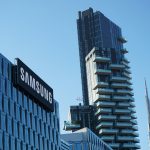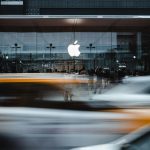The Trump administration announced Friday that smartphones, computers, and other electronics would not face the 125% tariff on Chinese goods. But this relief is only temporary and not part of the “90-day pause” granted to most other countries.
“They’re exempt from the reciprocal tariffs but they’re included in the semiconductor tariffs, which are coming in probably a month or two,” Commerce Secretary Howard Lutnick told ABC’s “This Week” on Sunday.
President Donald Trump cleared up confusion about the move. He wrote Sunday on Truth Social that “there was no Tariff ‘exception'” and these products “are just moving to a different Tariff ‘bucket.'” He said his team is “taking a look at Semiconductors and the WHOLE ELECTRONICS SUPPLY CHAIN.”
The exemptions protect big tech companies like Apple, Nvidia, and Samsung from the highest import taxes. Without this carve-out, experts predicted prices for popular devices could have tripled. Smartphones were America’s top import from China in 2024, totaling $41.7 billion.
White House Press Secretary Karoline Leavitt said the decision gives companies time to move production. “At the direction of the president, these companies are hustling to onshore their manufacturing in the United States as soon as possible,” she said in a statement.
U.S. Trade Representative Jamieson Greer insisted this wasn’t special treatment. “This type of supply chain moved from the tariff regime for the global tariff to the national security tariff regime,” Greer said.
Even with these exemptions, these products still face existing 20% tariffs related to China’s role in fentanyl trafficking. China’s Commerce Ministry called the exemptions “a small step” forward but urged the U.S. to “completely cancel” all tariffs.
The tech sector welcomed this reprieve after a rough week in the markets. At one point, the “Magnificent Seven” tech companies—Apple, Microsoft, Nvidia, Amazon, Tesla, Google parent Alphabet, and Facebook parent Meta—had lost $2.1 trillion in value since Trump announced the tariffs on April 2.
Trump’s talk of moving electronics to a “different bucket” has left many wondering what comes next. His promise to launch a national security investigation into the whole electronic supply chain signals more targeted measures ahead.
Tech companies scramble to adjust plans with little clarity on which products might face new tariffs or when they might hit. Reports show Apple recently chartered planes to bring 600 tons of iPhones from India to the U.S. to beat potential tariffs.
The confusing news out of the White House is “dizzying for the industry and investors,” said Wedbush analyst Dan Ives, adding it’s “creating massive uncertainty for companies trying to plan their supply chain.”





















